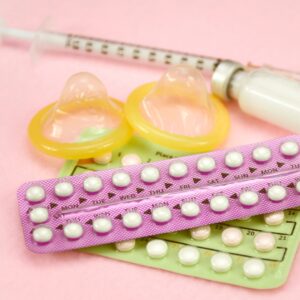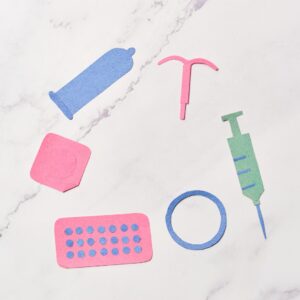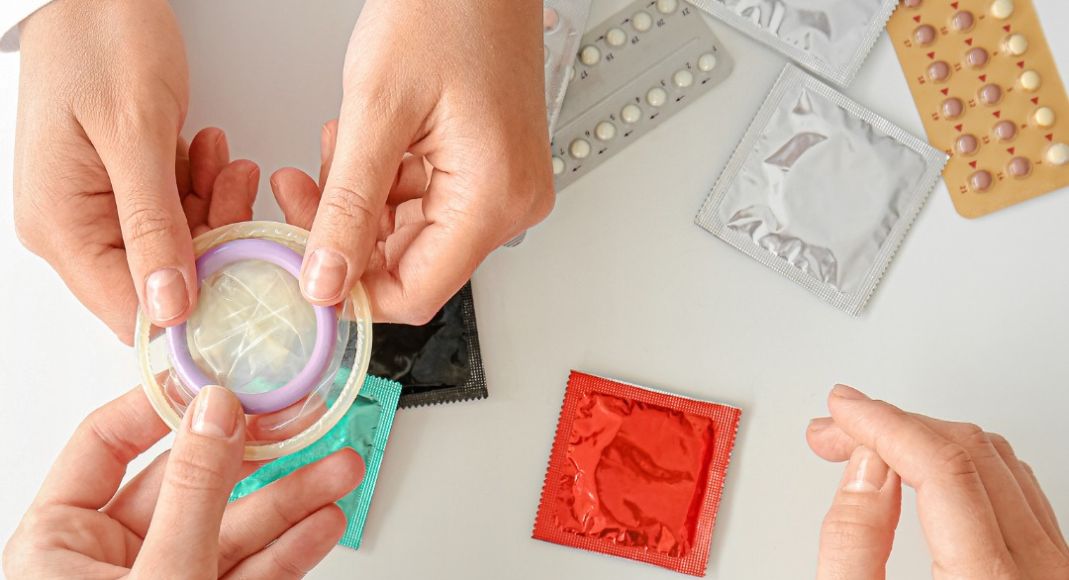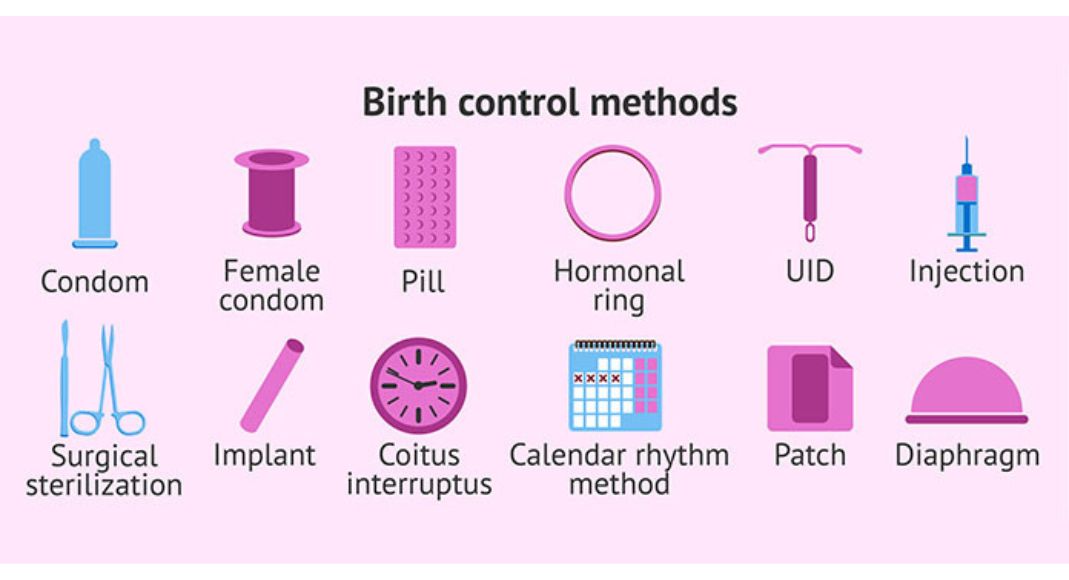Contraceptives play a significant role in managing various health conditions by offering both reproductive control and therapeutic benefits. These medical-grade contraceptives are designed to not only prevent pregnancy but also help manage a range of health concerns.
Take charge of your reproductive health with expert contraceptive services at Signora Maternity in Bangalore. From guidance to advanced solutions, we’re here to help you make informed decisions. Experience personalized care for a confident and healthy future

Commonly known as birth control pills, these contain hormones that regulate the menstrual cycle and offer benefits beyond contraception, such as reducing the risk of ovarian cysts and improving hormonal imbalances.
Provides reliable birth control for three months and can help manage conditions like endometriosis and heavy menstrual bleeding.
The patch releases hormones through the skin and provides a convenient option for those who may have difficulty taking pills regularly. It can be used for both contraception and managing certain health conditions.
The vaginal ring is a flexible, transparent ring that is inserted into the vagina and releases hormones. It can effectively manage conditions like heavy or irregular periods, dysmenorrhea, and hormonal imbalances.
These provide protection against sexually transmitted infections (STIs) while offering the flexibility to be used in conjunction with other contraceptive methods.
Besides preventing pregnancy and reducing the risk of STIs, male condoms are available over the counter and offer an extra layer of protection.
A silicone dome-shaped device that covers the cervix and blocks sperm from entering the uterus. It needs to be inserted by an expert gynecologist.
This approach involves monitoring menstrual patterns, basal body temperature, and cervical mucus to identify fertile and infertile days, assisting in family planning and managing certain health conditions.
This non-hormonal option is effective in preventing pregnancy and can also be used for emergency contraception.
It releases progestin to prevent pregnancy while potentially offering relief from heavy periods and reducing the risk of uterine cancer.

Long-acting reversible contraceptives are highly effective and convenient birth control options available at signora clinic in Bangalore that provide long-term pregnancy prevention contraceptive services. Unlike traditional methods like birth control pills or condoms, long-acting reversible contraceptives require minimal user intervention and provide continuous contraceptive protection for an extended period. Long-acting reversible contraceptives come in two main types: intrauterine devices (IUDs) and contraceptive implants.
IUDs are tiny, T-shaped devices that are inserted into the uterus by our expert gynecologist at Signora clinic in Bangalore. They can be either copper IUDs, which work by preventing fertilization, or hormonal IUDs that release a small amount of progestin hormone to thicken the cervical mucus and thin the uterine lining, making it difficult for sperm to successfully reach and fertilize the egg.
Contraceptive implants, on the other hand, are small rods that are placed under the skin of the arm. They release a synthetic version of progesterone called etonogestrel, which prevents ovulation and thickens cervical mucus to create a barrier against sperm.

Barrier methods of contraceptives play a crucial role in preventing unintended pregnancies and protecting against sexually transmitted diseases (STDs). These contraceptive options offer individuals a reliable and convenient way to take control of their reproductive health. By establishing a physical barrier that prevents sperm from reaching the egg.
Condoms are widely accessible and highly effective in preventing both pregnancy and sexually transmitted infections. They create a physical barrier that keeps sperm from entering the vagina. Male condoms, typically made of latex or polyurethane, are worn over the penis, while female condoms are inserted into the vagina. When used consistently and correctly, condoms can be around 95% effective in preventing pregnancy.
Spermicide, available in various forms such as gels, creams, foams, and suppositories, contains chemicals that immobilize sperm. When used correctly, spermicide can be up to 85% effective in preventing pregnancy. It is crucial to apply spermicide deep into the vagina before each act of intercourse. Combining spermicide with other barrier methods, like condoms, further enhances its effectiveness.
A diaphragm is a shallow, flexible silicone cup that covers the cervix, preventing sperm from reaching the uterus. Diaphragms require a proper insertion by an expert gynecologist, as an ill-fitting diaphragm may reduce its effectiveness. When used correctly, diaphragms can be up to 94% effective.
Cervical caps are similar to diaphragms but smaller and made of silicon. They are inserted into the cervix to prevent sperm from entering the uterus. When properly fitted and used consistently, cervical caps can be up to 71% effective.
Sponges are single-use, disposable barriers that contain spermicide. They are inserted into the vaginal canal to provide coverage for the cervix. Sponges provide both physical and chemical barriers to prevent pregnancy. They can be up to 76-88% effective when used correctly.
When it comes to barrier methods of contraceptives, proper usage and care are crucial for their effectiveness. Understanding the correct way to use each method and following care instructions can ensure maximum protection against unintended pregnancy.
Emergency contraception refers to the methods used to prevent pregnancy after unprotected sex or contraceptive failure. It provides individuals with an additional option to prevent unplanned pregnancies in emergency situations. The main purpose of emergency contraception is to reduce the risk of pregnancy when regular birth control methods might have failed or were not used correctly. When it comes to emergency contraception, there are several methods available for individuals who have had unprotected sex or experienced contraceptive failure. Two common options are contraceptive pills and intrauterine devices (IUDs).
contraceptive pills are oral medications that can be taken after unprotected sex to reduce the risk of pregnancy. These pills contain levonorgestrel, a progestin hormone that helps prevent or delay ovulation, the release of an egg from the ovary. By inhibiting ovulation, contraceptive pills aim to prevent fertilization. It is essential to note that contraceptive pills are most effective when taken as soon as possible after unprotected intercourse, preferably within 24 to 72 hours, depending on the specific product.
Intrauterine devices (IUDs) are small, T-shaped devices that are inserted into the uterus by our expert gynecologist at signora clinic in Bangalore. There are two types of IUDs used for emergency contraception: copper IUDs and hormonal IUDs.
Copper IUDs work by releasing copper ions, which create an inhospitable environment for sperm, preventing fertilization. They can be inserted up to five days after unprotected sex and are considered the most effective form of emergency contraception. Copper IUDs also serve as long-term contraception, providing ongoing protection against unintended pregnancy for several years.
Hormonal IUDs, on the other hand, contain synthetic progesterone that thickens the cervical mucus, making it difficult for sperm to reach the egg. These IUDs can be used as emergency contraception if inserted within five days of unprotected intercourse. Additionally, hormonal IUDs offer long-term contraceptive benefits, lasting for several years.
Remember, emergency contraception should only be used as a backup option and is not intended as a regular form of contraception. It is advisable to have a regular method of contraception in place to prevent unwanted pregnancies.
At our clinic, we understand the importance of providing comprehensive contraceptive services to individuals seeking effective pregnancy prevention. We offer a wide range of contraceptive services, accompanied by expert guidance and personalized care. Our goal is to empower you to make informed decisions about your reproductive health and ensure that you receive the best contraceptive services tailored to your specific needs.
Discover comprehensive women’s healthcare services at Signora Maternity, our premier fertility hospital in Bangalore. From Pap smear and dilation and curettage treatments to high-risk pregnancy care and postnatal support, Signora Maternity offers a range of specialized services. Our expert team provides personalized care for menstrual disorders, fertility issues, repeated abortions, antenatal care and post-menopause concerns. Additionally, we offer HPV vaccination, Mirena intrauterine IUD insertion, and menstrual cup consultations. Trust Signora Maternity for top-notch preconception counseling and female infertility treatments. Experience excellence in maternity care at Signora Maternity, known as the best maternity hospital in Bangalore. Visit us for UTI and PCOD treatments tailored to your needs. Your health and well-being are our priority. Schedule an appointment today.
Visit Our Maternity clinic Today
Name: Signora Maternity and Gynecology Clinic
Address: 396, 1st floor , 8th main, 7th Cross Rd, BTM 2nd Stage, Bengaluru, Karnataka 560079
Contact number: 6362141790
The team at Signora Maternity was amazing in guiding me through my contraceptive options. They explained everything in detail and helped me choose the best method for my lifestyle. I felt respected and supported throughout the process.
Signora Maternity is the best when it comes to contraceptive care. The doctor took the time to address all my concerns and provided personalized recommendations. I’m so glad I chose them for my reproductive health needs.
Signora Maternity made the process of choosing a contraceptive method stress-free and informative. The doctor patiently answered all my questions, and I never felt rushed. Their care and attention to detail were outstanding.


